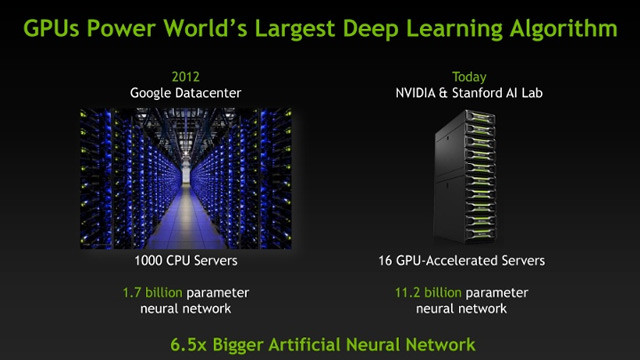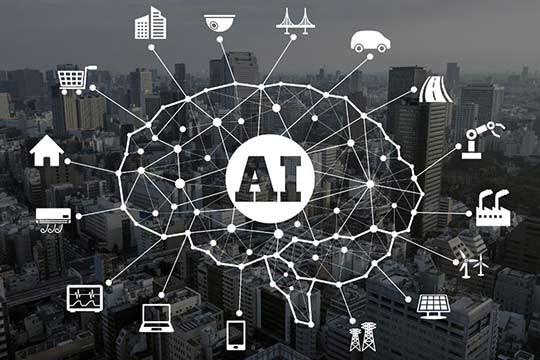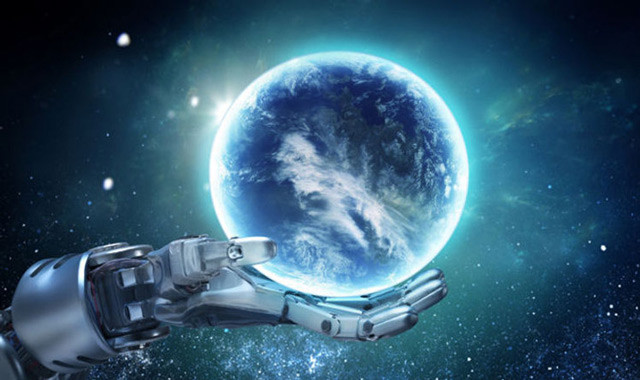How does Al revolution help us answer the most fundamental problems of philosophy? (Part 2)
Who I am? I was born to do? The AI revolution under the eyes of Kaifu-Lee technology expert Part 2 will help you continue to explore the answers to these two eternal life questions. After the failure of the first two waves, how did the AI continue to develop and take off so far? Does the current AI have enough power to dominate the world as some forecasts?
- How does Al revolution help us answer the most fundamental problems of philosophy? (Part 1)
Summary of part 1: the mechanism of the first two waves of artificial intelligence in the world: a system based on thinking rules (first wave), statistical models and machine learning (second wave )
PART 2: The third Al wave and re-evaluate Al's current capabilities.

The third wave of AI - an explosion thanks to hardware power
In the first wave, I (author Kai-fu Lee) was fortunate to know computer scientist and psychologist Roger Schank. In fact, one of his students is my instructor during my years of master's degree. These experiments have led me to believe that expert systems cannot expand, and our brains may not work the way we thought. I realized, in order to simplify speaking out our decision process, we used "if, then, else" as a language that people understand, but our brains are complex. more so than that.
In my second wave, in my thesis and doctoral studies, I read the work on the Bayesian networks of Judea Pearl. I am very much influenced by leading scientists at IBM, including Dr. Fred Jelinek, Peter Brown, Bob Mercer. They have made a mark in turning official statistical methods, not only in voice but also in machine translation (in the 80s and 90s of the 20th century). I owe them many gratitude. We are still stuck, but not because of the wrong technology. The truth is, the statistical methods are absolutely correct.
In the late 1980s, when I worked with hidden Markov models at Carnegie Mellon, Geoff Hinton was working on neural networks he named "Time-delaying neural networks". It is thought to be the first version of the complex neural networks that are now popular with deep learning, a technology currently dominating.
But why can't the neuroscience-based learning and statistics wave take off? In retrospect, this wave has nothing to do with technology, most of the technology has been invented. The only problem is that we don't have enough training data. Our brains work in a completely different way from deep learning machines. To launch deep learning machines, we need to give them more training data at every level than humans. People can see hundreds of faces before they begin to recognize people, but deep neural networks want to see billions of faces for proficient recognition.
Of course, when they are proficient, they will be better than humans. That's what was foretold. But at the time, we simply did not have enough training data, nor did we have enough computing power to bring these discovered technologies to the top. Google began to realize that, in order to search, you need a lot of machines to run in parallel. Then Jeff Dean (Google's head of computer AI) and others in Google find that, once you have those parallel machines, you can do more than search. You can build AI based on them. To build AI, you need special chips that do it well. Then the GPU of Nvidia appeared, and Google built its own TPU. That is an interesting progress. It was a coincidence that Google chose to search, and the search needed servers, and they had Jeff Dean. That has led to parallel GPU or TPU learning structures that can range from multiple data from a single area (GPU is a processor with thousands of smaller, higher-performing processors that can handle handling multiple tasks simultaneously, compared to regular CPUs, only a few cores are optimized for continuous sequential processing).

(Photo: Anand Tech)
New technologies have developed based on the aforementioned series of parallel machine learning structures, and these structures run on new GPUs and accelerators. More and more people are able to train face recognition devices, speech recognition, image recognition, and AI applications into search and forecast. More and more internet data. Amazon used these data to predict what customers want to buy. Google uses data to predict the ads you want to click and potentially spend money. Microsoft also uses it. In China, we have Tencent and Alibaba. Many applications are based on huge amounts of Internet data.
At the same time with the evolving technologies, Geoff Hinton, Yann LeCun, and Yoshua Bengio were the three people who continued to work on the neural network, although they were no longer orthodox in the early 2000s. That work is a new thing, and groundbreaking statistics show that these networks cannot expand. So funding agencies abandoned them, conferences stopped accepting research on them, but the three researchers maintained it with little money to refine and develop better algorithms. And then more data appears. A breakthrough came with the creation of new algorithms, sometimes called "complex neural networks", and is now known as "deep learning".
The set of technologies derived from the three professors began to flourish in the AI industry. Voice recognition systems designed by leading companies are winning human capacities, and the same thing happens with face recognition companies, image recognition. Those are e-commerce evidence, user / speaker identity has been applied to Internet data, higher for Amazon, giving them more money; better forecasts for Facebook in the way news feeds are ranked; Better search results from Google. By the end of the 2000s, deep neural networks began to become familiar in Google, and exploded almost everywhere in the past 7 or 8 years. Many structures were born, many smarter systems were developed. Of course, the event that triggered the world was that AlphaGo defeated Lee go-between grandmaster from Korea and grandmaster Ke in China with increasing disparities. And more recently, a new study suggests that AlphaGo can be trained from zero without human knowledge.

All these breakthroughs have made the whole world know that at this time AI is realistic. We had something in the second wave, neural networks and statistical methods that were accurate, just that we didn't have enough data, not enough computing power, and not enough progress. Technology kit at the time to make that happen. But now we can do it.
Can AI dominate humans?
AI is taking off everywhere. Many new schools of thought appear. There is a collection of people who begin to reflect on our original question: who are we, and why do we exist? These people infer that, because the AI can improve themselves very fast in the past two or three years, if we promote that in other regions, we will have super smart machines that can be plugged into our heads and become human enhancements, or they will be demons and dominate humans.
I just want to ban this kind of thinking. Just that is not correct. Although progressing as AI today or appearing as much as AI is doing is extraordinary is to beat people in games, speech recognition, face recognition, self-driving vehicles, industrial robots, The AI will still be restricted in the following ways: Today's AI (which we call weak AI) is an optimal device based on a lot of data about a field they learn to do something very well. It is a vertical task force, but only one thing can be done. You cannot teach him many things. You cannot teach it many areas. You cannot teach it to have a common sense (common sense, knowledge, experience, common behavior that most of us agree is true or false). You cannot give it emotion. It has no self-awareness, so there is no desire, not even understanding of how to love or dominate a person.
All those negative talks are silly. That is excessive imagination. We're seeing AI go into new applications in fast-growing areas, but that's the rapid growth of applications that belong to the mature technologies we have. That growth will end when all technologies are developed. Then we have to wait for new breakthroughs for further AI advances. But you cannot predict further advances.
If you look at the history of AI, this kind of deep learning is only happening once. Only once since 1957, once in 60 years do we have a breakthrough. You cannot go ahead and predict that we will have a breakthrough next year, and then the following month or the following day. That is too fast. The use of applications until now takes place. That's great, and the idea of quick inventions is a silly concept. In my opinion, those who claim these things and those who believe that our uniqueness is ahead are not entirely based on the actual industrial situation.
Today, only AI every time focuses on doing one thing, and it's a great tool. It is good at creating value. It will replace many human jobs and some other human work. that's what we should think about, not the big and powerful AI, the kind of machine that is like a human being and can think in many areas, has the common perceptions of people. After all, we cannot predict it based on current progress.
Can that happen one day, one hundred or one thousand years from now? I think anything can happen. But maybe we should focus energy on things here, today. And the things here are now super-optimized machines that can outperform people in jobs: stock selection, loan execution, customer support, telemarketing, production line work, legal support. AI can do those things better than humans. They are taking over those things and freeing our free time, allowing us to do what we really love and what we do best. It is a life-long opportunity, not a scary scenario when computers become super smart.

According to VnReview
See more:
- Free online artificial intelligence (AI) course of Finnish university
- 6 steps to start learning artificial intelligence programming (AI)
- Online courses on artificial intelligence (AI), certification
You should read it
- ★ How does Al revolution help us answer the most fundamental problems of philosophy? (End)
- ★ 91% of technology managers believe that AI will be the center of the next technology revolution
- ★ AI revolution: Opportunity or challenge?
- ★ Watching pictures painted by artificial intelligence, everyone thinks that is the work of a true artist
- ★ Artificial intelligence learns to create another artificial intelligence, replacing people in the future